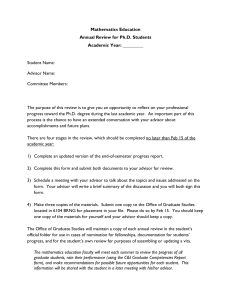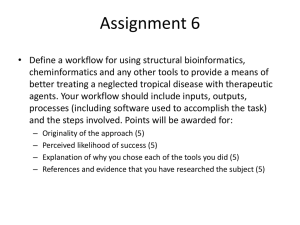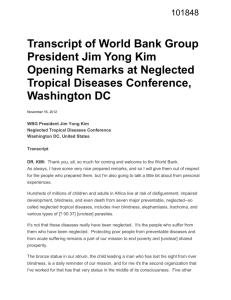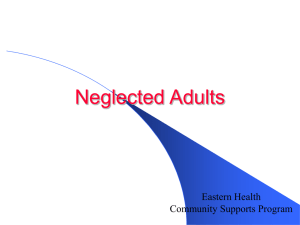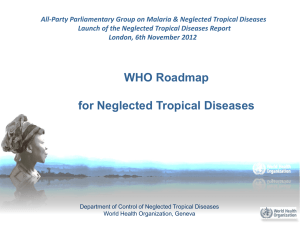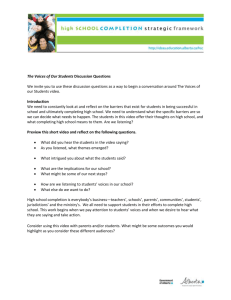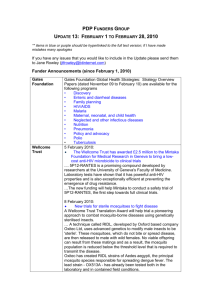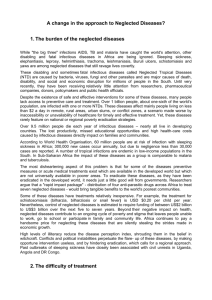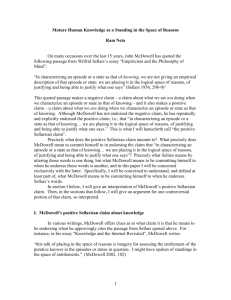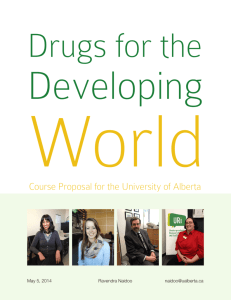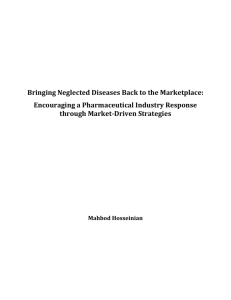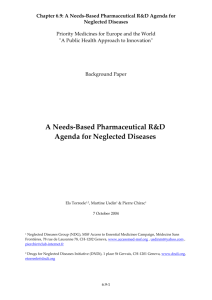ResearchAbstract-ALC - pascowritinginstitute2011
advertisement
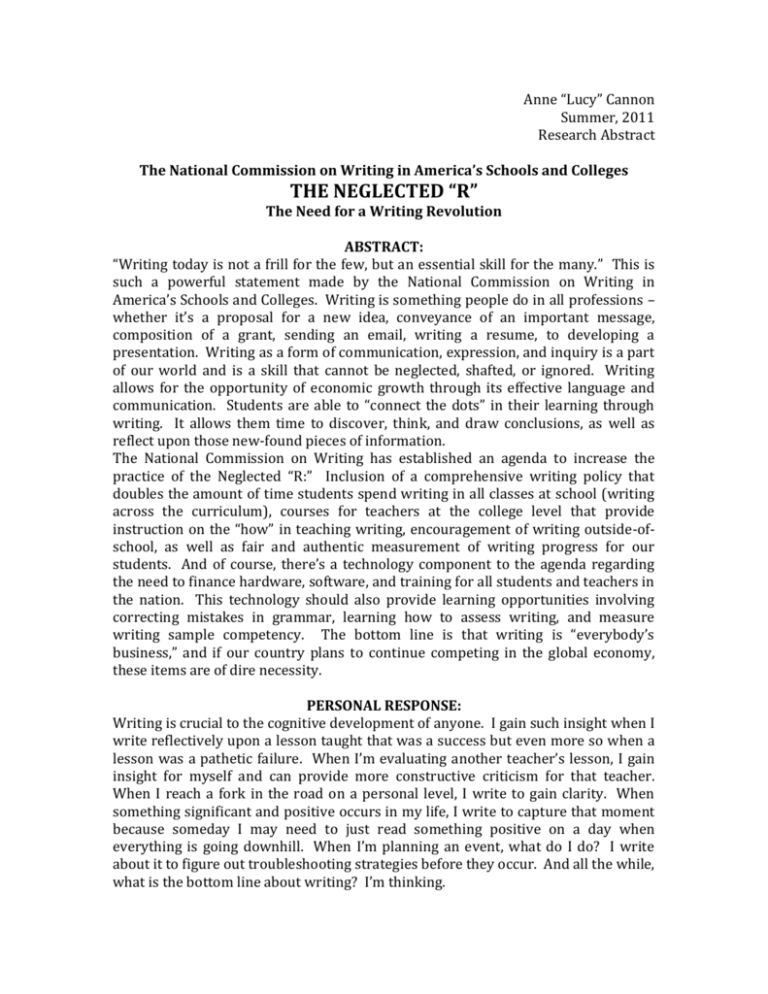
Anne “Lucy” Cannon Summer, 2011 Research Abstract The National Commission on Writing in America’s Schools and Colleges THE NEGLECTED “R” The Need for a Writing Revolution ABSTRACT: “Writing today is not a frill for the few, but an essential skill for the many.” This is such a powerful statement made by the National Commission on Writing in America’s Schools and Colleges. Writing is something people do in all professions – whether it’s a proposal for a new idea, conveyance of an important message, composition of a grant, sending an email, writing a resume, to developing a presentation. Writing as a form of communication, expression, and inquiry is a part of our world and is a skill that cannot be neglected, shafted, or ignored. Writing allows for the opportunity of economic growth through its effective language and communication. Students are able to “connect the dots” in their learning through writing. It allows them time to discover, think, and draw conclusions, as well as reflect upon those new-found pieces of information. The National Commission on Writing has established an agenda to increase the practice of the Neglected “R:” Inclusion of a comprehensive writing policy that doubles the amount of time students spend writing in all classes at school (writing across the curriculum), courses for teachers at the college level that provide instruction on the “how” in teaching writing, encouragement of writing outside-ofschool, as well as fair and authentic measurement of writing progress for our students. And of course, there’s a technology component to the agenda regarding the need to finance hardware, software, and training for all students and teachers in the nation. This technology should also provide learning opportunities involving correcting mistakes in grammar, learning how to assess writing, and measure writing sample competency. The bottom line is that writing is “everybody’s business,” and if our country plans to continue competing in the global economy, these items are of dire necessity. PERSONAL RESPONSE: Writing is crucial to the cognitive development of anyone. I gain such insight when I write reflectively upon a lesson taught that was a success but even more so when a lesson was a pathetic failure. When I’m evaluating another teacher’s lesson, I gain insight for myself and can provide more constructive criticism for that teacher. When I reach a fork in the road on a personal level, I write to gain clarity. When something significant and positive occurs in my life, I write to capture that moment because someday I may need to just read something positive on a day when everything is going downhill. When I’m planning an event, what do I do? I write about it to figure out troubleshooting strategies before they occur. And all the while, what is the bottom line about writing? I’m thinking. Writing is crucial to the cognitive development of my students. My students write to develop schema on a topic, situation, or Language Arts skills. We access what we already know to serve as a foundation for future learning opportunities. My students write to reflect upon a product created for an assessment purpose – be it a novel product, a unit product, a writing product, or even something as small as an essay or a quote. When they write reflectively, they are thinking about their thinking and reaching a higher level of thought-process levels. When students write reflectively on a regular basis, they learn to think that way. Their lives change because their thought process changes, and my students truly become life-long thinkers. My students also write reflectively on four topics each quarter in their Common Place books as well as four topics of their own choice – a total of eight topics each quarter. This opportunity allows my students to think about various topics and build schema on future writing opportunities. My students write evaluatively – They evaluate lyrics to songs, poetry, evaluation of an activity, evaluation of a piece of writing. In our world, what do we often do when provided a service? We are asked to … complete a survey and EVALUATE. My students write analytically – They analyze characters, their motivations, their purpose, and author’s purpose in a piece of writing, self-analysis … The more they analyze, the more they THINK. The foundation of education. I want my students to be productive members of society. They may not all go to college, but if they can analyze situations, people, directions, etc. they will reach a level of success that would not be possible without each writing opportunity. I nuture a love of writing in my students. It may not happen in merely one year; it may not happen in two. But that love, that need to write, develops in the course of time my students are in my classroom. Nothing makes me happier than when a student asks me to read something they wrote over the weekend … when he or she needed to write for clarity, reflection, analysis, whatever. It is truly beauty at it’s finest. I love to push my students to higher levels of expression, and see them reap the benefits of that gentle nudge, push, or shove. CLASSROOM APPLICATION: The National Writing Commission policy on increasing and improving writing instruction is a necessity. I’ve taken the summer workshop/class directed by the Tampa Bay Area Writing Project twice now. The first time, it gave me a vastly different perspective on the process of writing. I abandoned the stifling structure of writing instruction that I imposed upon my students. I was, after all, stifling their voices. Until I took the class in 2008, I was actually doing my students an injustice. After the class, my students written expression soared to such heights that I often read and reread pieces they developed because they were that beautiful. Their voices jumped off of the pages they composed upon. My second time in taking the summer class, I hope to provide more opportunities for growth – I know this will not be a problem because my brain turns and tumbles with ideas spawned by merely being around other teachers that have a passion for writing! I make time for writing everyday … and each class period is jam-packed with activities. The writing time is a sacred thing. “Writing today is not a frill for the few, but an essential skill for the many.” WOW! That’s just about all I can say …


